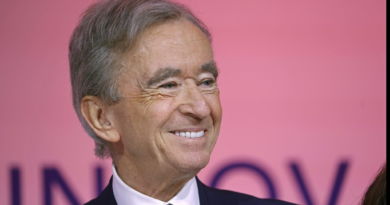Economic optimism belongs to the wealthy and for some mysterious reason the young, according to new data from The Conference Board
For the first time in three months, consumer confidence in the economy rose, according to the Conference Board’s monthly report. Two paradoxical groups emerged with the highest levels of confidence: One that’s prone to being insulated from economic anxieties. And a second that is often the poster child for them.
Both wealthy individuals making more than $100,000 a year, and young people, defined as those under the age of 35, had the highest degrees of consumer confidence, according to the six-month average. The increase in confidence for wealthier households can be explained by a booming stock market, Conference Board senior economist Stephanie Guichard told Fortune. While for young people the high levels of consumer confidence are common in the Conference Board’s survey have taken on renewed importance given that in recent months consumers across the country have had a largely negative view of the economy lately.
Even after the Conference Board’s uptick in Tuesday’s report, overall consumer confidence is at some of the lowest levels since 2021. And yet, by many metrics the economy is in good condition—certainly better than it was during the pandemic-induced slump of 2021 to 2022. Inflation has come down since the highs of June 2022. The unemployment rate didn’t soar as is customary when the Federal Reserve takes measures to lower inflation. And within the job market, wages are still relatively high.
Consumers might acknowledge things are better than they were during the pandemic, but they still struggle to see meaningful progress on the cost-of-living struggles that plague their everyday lives. Inflation has come down, but isn’t back to manageable levels, as grocery store prices still induce sticker shock for customers. Mortgage rates have become prohibitively high—reaching 7% last month — putting homeownership out of reach for many.
Rising confidence for the wealthy can be attributed to the stock market, according to Guichard. “In April the stock market went down, and we saw high income confidence going down,” Guichard said. “This month the stock market rebounded, and we saw strong rebounding consumer confidence.”
Wealthier people often have more money tied up in market-based investments and instruments, meaning that any change to equity prices can have a major effect on their personal finances. Early this year a report found that the top 10% of households owned 93% of stocks and mutual funds.
If the explanation for why the confidence levels of the affluent grew was clearly identifiable, the reason why young people did remains a mystery. Data provided by Guichard shows that’s been the case since May 2023. And in an interview Guichard said that except for “very rare occasions” that’s been the case since 1996.
But those findings seem to fly in the face of other research. A report from consulting firm Deloitte found the top concerns for both Gen Z and millennials was the current cost of living. Both cohorts had little confidence that or any other economic challenge would improve. Only 32% of Gen Z said they expected the “overall economic situation will improve,” while 31% of millennials said the same, according to Deloitte’s research. Some millennials faced such deep levels of economic uncertainty it was making them depressed. Even those who handled the situation with a cooler head were left feeling like the American Dream—hard work paying off with a life of financial security—had been a false promise.
For Guichard, the exact reason for why some of those under 35 are so confident in the economy is unclear. Other research points to some possibilities. One explanation is that millennials tend to feel better about their finances when they get financial help from their parents. Millennials also stand to benefit from the great wealth transfer, where their boomer parents will leave them sizable inheritances. Both of those would give young people an immediate influx of cash, but that’s hardly a replicable economic trend.
Another explanation is that the job market remains strong. The unemployment rate is just 3.9% and there’s been more open jobs than workers to fill them for years now. All that means even young workers, at the early stages of their careers, feel like they’re able to have some modicum of professional advancement. If any of the promising data points about the job market were to sour then young people might start to sour on the economy, Guichard says.
Based on some economists project that will happen later this year, which could disappoint even the seemingly perpetually confident young consumers.




